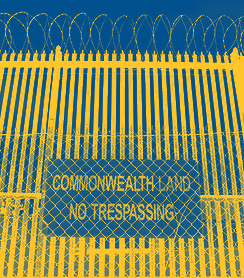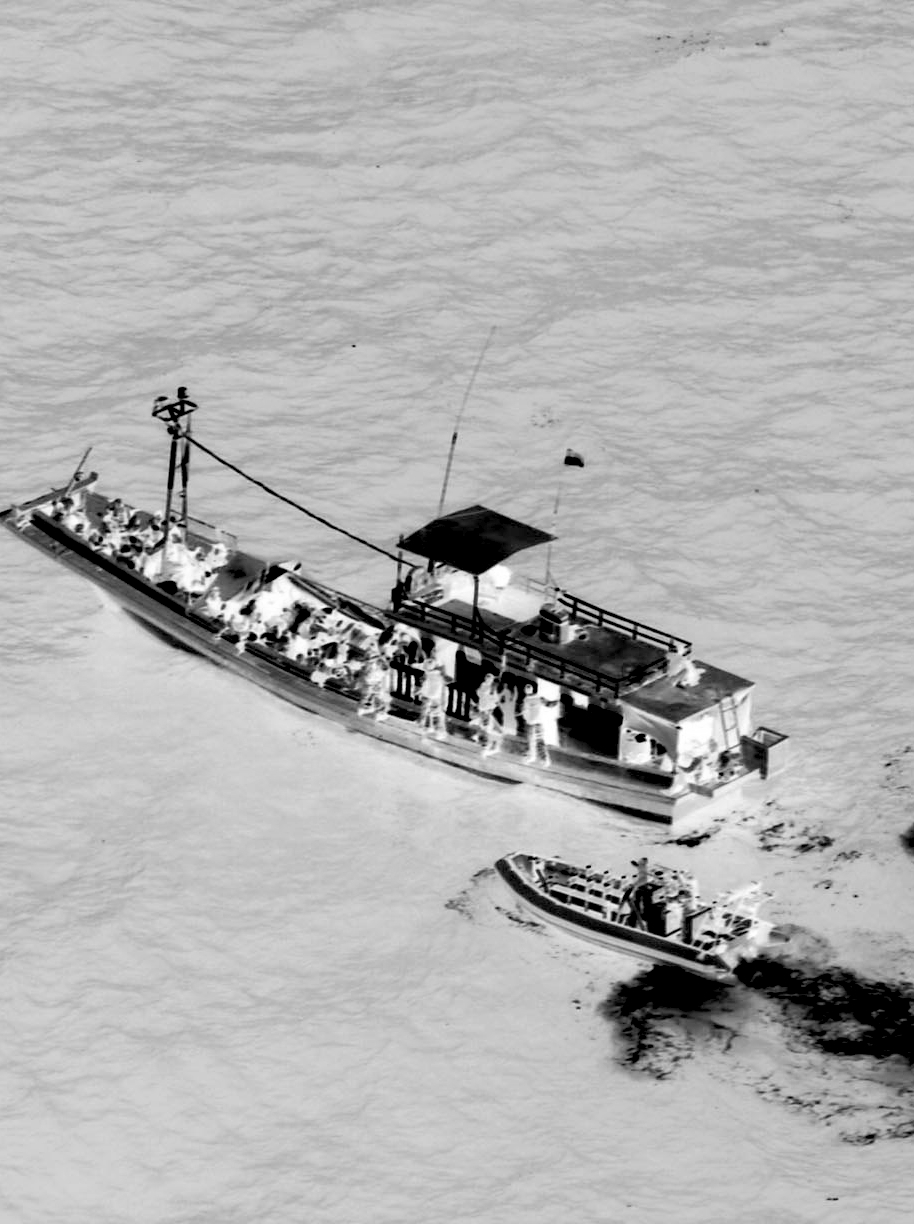Human rights bid marred by strong response
 Australia’s attempt to join the United Nations Human Rights Council has prompted over 100 responses from member nations, some of which unleashed on its rough treatment of refugees.
Australia’s attempt to join the United Nations Human Rights Council has prompted over 100 responses from member nations, some of which unleashed on its rough treatment of refugees.
The UN Human Rights Council's conducted an official review of Australia's human rights policies at the Palais des Nations in Geneva on Monday, with scrutiny reportedly ramped up amid Australia’s efforts to secure a two-year term on the council.
The review saw representatives from over 100 countries give recommendations on how Australia might improve its human rights record.
Dozens of countries – many of which have dubious human rights record themselves - called on Australia to stop boat turn-backs and mandatory detention, while granting refugees their full rights.
Brazil, Turkey, Spain, Sweden, Switzerland, Bangladesh - even Rwanda, Iran, Russia and North Korea - expressed concern over the country’s treatment of refugees, particularly the presence of women and children held for years on end in detention centres.
There was a strong call from several nations for Australia to ratify 'OPCAT' – the international convention against torture.
But Australia is not expected to get on board, as signing the deal would expose the offshore asylum seeker detention centres to proper international oversight and review.
A number of countries in the review noted Australia’s historically horrendous treatment of its Indigenous people, high level of violence against women, and growing propensity for Islamophobia as avenues for improvement.
French spokesperson Thomas Wagner said Australia should “develop alternatives to the mandatory detention of asylum seekers, especially when dealing with children”.
The representative from Germany called on Australia to “critically review” offshore processing.
He said Australia must “remove children and their families, and other individuals at risk – in particular survivors of torture and trauma – from immigration detention centres”.
Bangladesh's representative said Australia had “set a poor benchmark” in its treatment of arriving migrants so far, and joined calls for the repeal of mandatory detention.
She also raised “firsthand reports of discrimination and racism, particularly associated with Islamophobia”, as an area to work on.
The United States wants Australia to “ensure humane treatment and respect for the human rights of asylum seekers, including those processed offshore”.
The US said offshore processing should be “closely monitored”, but stopped short of calling for detention centres to be closed.
North Korea – not exactly an authority on respecting human rights – said it was “seriously concerned at continued maltreatment of and violence against the refugees and asylum seekers”.
Iran holds a “deep concern about the mandatory immigration detention regime”, its representative said.
China wants Australia to do more to safeguard human rights for “all refugees and asylum seekers who reach Australian shores”.
But even some of the strongest critics acknowledged Australia was doing better since its first human rights review in 2011.
Still, Russia had to point out that Australia had taken up a mere 10 per cent of the 145 recommendations it claimed to have accepted from the 2011 review.
Russia said it found that statistic in this year's report by the Australian Human Rights Commission.
The Australian delegation defended the Government’s migration policy, reading from a series of pre-written responses.

Immigration Department official Steve McGlynn said Australia was committed to its hardline on border protection– saying a “critical element is to send a clear message that people smugglers do not offer a path to Australia”.
He argued that because fewer asylum seeker boats were coming, so the policy had “saved countless lives at sea”.
He said mandatory immigration detention was “viewed by Australia as vital to ensuring the integrity of our migration and visa programs”.
Australia currently holds 2,044 people in immigration detention, with another 113 children in ‘alternative detention’.
Australian Human Rights Commission president Professor Gillian Triggs said international speakers had been “courteous”, and even recognised schemes such as the NDIS and the Children's Commissioner as worthy of praise, despite “definitely common themes” of concern, she said.
“About 75 per cent of recommendations were about detention centres, mandatory detention especially in relation to children and the stop-the-boats policy that failed to recognise the rights of asylum seekers… that was probably the majority view,” she said.
“There is real international concern about Australia's asylum-seeker policies… [there is] a disappointment that we have strayed from our international obligations.”
But, she said, Australia's pre-composed responses in the room were at some points, “deeply misleading”.
Immigration Minister Peter Dutton described the UN’s human rights review as “a farce”, leading to some confusion as to why Australia is bidding for a place on the same council behind the review.
“My favourite contribution to this UN process was from North Korea - a bastion of human rights - with their representative reported to have said that his country was ‘seriously concerned at continued maltreatment of and violence against the refugees and asylum seekers’,” Mr Dutton said.
“This shows what a farce this process is.”
He said his government is “proud of... the fact that we have been able to stop people drowning at sea, we have removed children from detention and been able to close 13 of the 17 detention centres down opened by Labor”.
Professor Sarah Joseph of Monash University's Castan Centre for Human Rights Law said the UN council had made a series of very specific recommendations that Australia should find it hard to reject.
“Given the sheer number of recommendations, this is going to be another point of pressure on the government,” she told reporters.
The recommendations are not binding under international law, but will be made public later this week.







 Print
Print